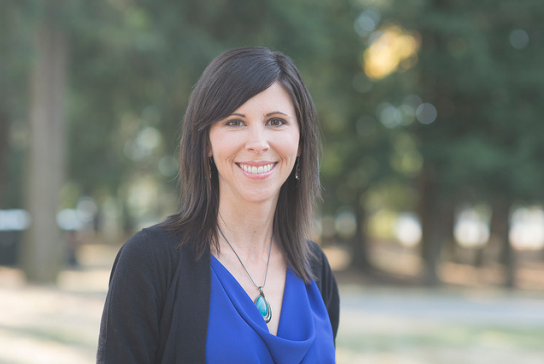By Dessa Bayrock (The Cascade) – Email
Print Edition: April 3, 2013
There’s a lot going on at UFV that students don’t get credit for.
But with the introduction of a new program this May, that will all change.
Serving as a sort of activities transcript, the co-curricular record program will launch this spring. In short, it will be an official university report detailing volunteer work and other experiences on campus but outside of the classroom.
Jill Harrison is the manager of Student Life and Leadership at UFV, and is more than familiar with the work that students put into extra-curricular abilities – from clubs to associations to events.
“We were thinking of ways we could give credit for the work that the students were doing,” she explains, noting that the co-curricular record has been in the works for almost half a decade.
The project was given new life when Jody Gordon came to UFV last year as vice president of students. She unsuccessfully advocated to institute the program at her last school, and was thrilled to find it was in the works at UFV. Joining her voice with Harrison’s and forming a committee to look into it further, the two started to make the plan a reality.
“[There] are ways that we can now help students demonstrate the activity involvement that they’ve had,” Gordon notes, “in addition to what their grades were, and what courses that they took, and the programs they’ve completed.”
The record will document any activity outside of the classroom that students spend at least 20 hours on between September and April. Students will be responsible for submitting reports to a co-curricular committee, which then follows up with the group or association to validate the student’s involvement.
It’s a cutting-edge program in effect at only a handful of Canadian universities, and UFV will be one of the first in BC.
Gordon says UFV was just in the right space at the right time.
The university recently put both time and energy into developing nine institutional learning outcomes describing the skills UFV hopes to instill in its students. They range from critical thinking to leadership to writing proficiency.
The co-curricular record program was able to use these learning outcomes as a foundation – something other universities have to build from scratch.
“A lot of schools that launch co-curricular spend a year and a half just developing learning outcomes,” Gordon says. “They don’t have the advantage that we have – we already had them.”
She also notes that other universities’ co-curricular programs use guidelines completely separate from institutional learning outcomes.
“The further advantage we have is that we’re tying the co-curricular and the curricular, so what you’re doing in the classroom – to the same learning outcomes,” she says. “If you think about your experience in the classroom versus what you’re learning outside … put that together – there’s your whole experience.”
Wilfred Laurier University (WLU), Acadia University and the University of Calgary all have similar programs, which the UFV co-curricular committee used as a springboard.
“When I was visiting [WLU] a few years back, they said that employers in their local area of Waterloo are asking for it,” Gordon explains. “So, ‘Where’s your resume, where’s your transcript, where’s your co-curricular record?’ Because they’re understanding now – they want to see what students are involved in.”
As an unexpected benefit, Harrison notes, UFV also expects the record to boost student involvement. In the first year the program launched in Calgary, the university saw a 10 per cent increase in student engagement.
“It actually drove engagement and increased the level of engagement the first year they launched – which they didn’t expect,” Gordon explains. “Where they were used to getting 10 volunteers, suddenly they were getting 15 and 20.”
The program will slowly build a comprehensive list of activities on campus that students can get involved with – from events, to job opportunities, to organizations on campus like SUS or CIVL radio. Each position will have a job description tying directly into the institutional learning outcomes, so students will be able to see exactly what’s involved and what skills opportunities will draw on and improve.
The program will see a “soft launch” in May, when the software behind the record will go online for the first time. Students and organizers will be able to log in and begin building a co-curricular record – either inputting job descriptions, or applying to have experience added to a record.
“We know not everything is in there yet, but we need to start getting the software used by people and used by students.”
For now, the record will also be retroactive – allowing students to add experience up to January 2013. Unfortunately, Gordon says, going any further back would add too many problems to track accurately.
Starting in September, students will see a marketing campaign swing into full gear – helping balance priorities between schoolwork and campus experience.
After all, Gordon says, it’s all part of a university education.
“This is part of the whole process of learning,” she concludes. “It’s not just about the classroom experience.”


